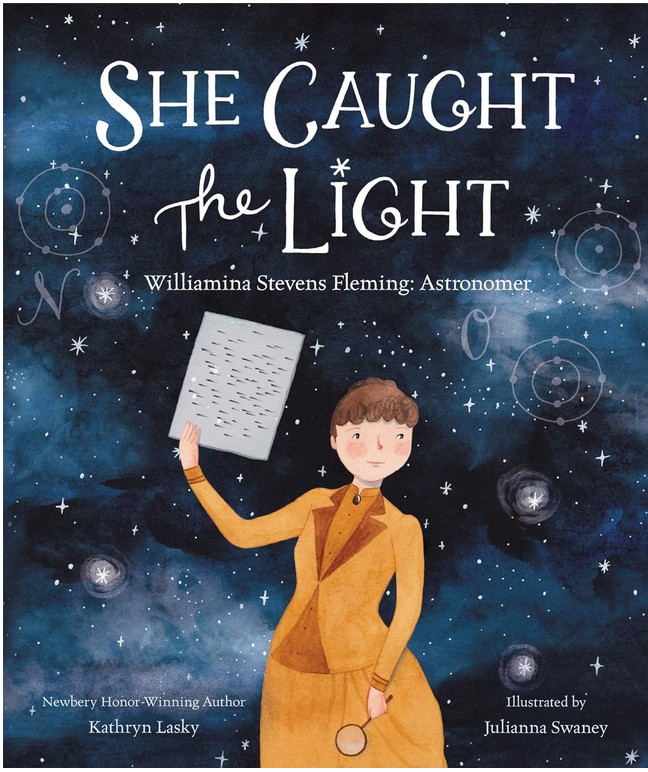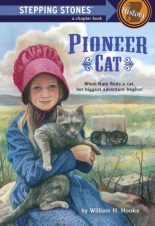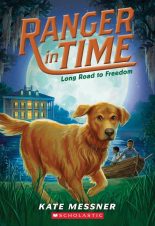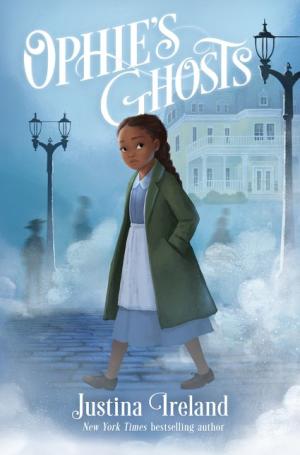
Buy This Book
“The more Ophie thought about it, the harder it seemed to be colored, to have to think before doing anything, to wonder if the white folks looking at her meant her harm. No one came and burned someone’s house down in the middle of the night if that person was white.” –Ophie’s Ghosts
Ophie’s Ghosts
by Justina Ireland
AR Test, Must Read
8+
Score
6.3
336
Ophelia Harrison used to live in a small house in the Georgia countryside. But that was before the night in November of 1922, and the cruel act that took her home and her father from her– which was the same night that Ophie learned she can see ghosts.
Now, Ophie and her mother are living in Pittsburgh with relatives they barely know. In the hopes of earning enough money to get their own place, Mama has gotten Ophie a job as a maid in the same old manor house where she works.
Daffodil Manor, like the wealthy Caruthers family who owns it, is haunted by memories and prejudices of the past and, as Ophie discovers, ghosts as well. It is filled with ghosts who have their own loves and hatreds and desires, ghosts who have wronged others, and ghosts who have themselves been wronged. And as Ophie forms a friendship with one spirit whose life ended suddenly and unjustly, she wonders if she might be able to help—even as she comes to realize that Daffodil Manor may hold more secrets than she bargained for.
Ophie’s Ghosts pulls the reader into the story from the very first page and will keep readers engaged until the very end. While Ophie’s tale shows the harsh realities of living in the 1920s, the story is spun using kid-friendly descriptions. However, younger readers could be disturbed by Ophie’s encounters with ghosts, many of whom died tragically. The ghosts are from every walk of life and include people of all ages and races. While Ophie interacts with many ghosts, none of the ghosts try to harm her. For Ophie, the danger comes from the living.
Readers will empathize with Ophie, who is thrown into servitude at a young age. Through Ophie’s experiences, readers will come to understand the difficulties African Americans faced during the 1920s. The story gives many examples of discrimination and explores the topic of passing as caucasian. In the end, Ophie cries because “girls who believed in happily ever afters could be murdered in attics, and because men who just wanted to have their voices heard could have their words choked off forever.”
Throughout the story, Ireland references people and events of the time. However, the text doesn’t explain the references and most readers will not understand their significance. For example, Ophie’s mother makes several comments about bootleggers, but the term is never explained. In addition, the story uses some difficult vocabulary such as irksome tomes, incandescent, tincture, fluffing, and blotto. Despite this, most readers can use context clues to understand the term.
Through Ophie’s point of view, Ophie’s Ghosts paints a vivid picture of life in the 1920s. Ophie points out the unfair circumstances that rob her of her childhood. However, despite the hardships Ophie faces, she is never bitter. Instead, she thinks about her Daddy. “Daddy had often said that when presented with two choices, a hard thing and an easy thing, the right thing was usually the more difficult one.” Because of her Daddy’s words, Ophie has the courage to listen to the ghosts and help them move on.
Readers who enjoy historical fiction, should also read Sweep: The Story of a Girl and Her Monster by Jonathan Auxie and The Player King by Avi. For readers who want to learn about history, but aren’t ready for more mature books, Survival Tails by Katrina Charman and American Horse Tales by Michelle Jabés Corpora would be good choices.
Sexual Content
- Ophie asks Cook about a woman she saw. Cook replies, “Sometimes Mr. Richard likes to bring home . . . a bit of company, but those girls are not business of yours.”
- Ophie likes to read romance books. “Mama would have had a fit if she knew her daughter was reading such things, stories of girls who were compromised, whatever that meant, and kissed boys who left them heartbroken.”
- Sophie asks Clara, a ghost, about her beau. Clara said, “A lady never kisses and tells.”
- A woman in a dressing room goes into the kitchen. Ophie wonders, “Did Clara know that Richard was having friends over, friends who walked around the house half-dressed after sleeping in most of the day?”
Violence
- Ophie’s father is murdered because he voted. His death is not described.
- After killing Ophie’s father, a group of men burn down Ophie’s family home. Ophie and her mother hide from the men. “The snap and crackle of fire slowly grew louder than the voices of the men, a roar of consumption, followed by thick smoke that twined sinuously through the treetops. . .”
- When a group of men are standing around talking, Ophie thinks, “The men who were in her yard, yelling and laughing, were the kind of white men who had beat up Tommy Williams just because he accidentally looked the wrong way at a white lady from Atlanta. After they’d pummeled Tommy, they’d dropped him off in the woods near Ophie’s house, most likely because they’d figured no one would find him.”
- Even though Ophie is young, she still understands that “Colored folks who’d broken some unspoken rule, gotten uppity and acted above their station, paid the price for such an error with their lives.”
- Sophie meets a ghost who is just a boy. He has “bloody welts crisscrossing his back.”
- When Ophie tries to help her cousin with her homework, “the result had been a vicious slap without any kind of warning.”
- Caruther tells about a boy who was whipped “until the white meat showed.”
- A man is hit by a trolley. “He boarded the trolley right through the closed door, his suit torn and bloody, his hat missing entirely. . . his gray suit and pale skin made the blood dripping from his head all the more vivid.”
- The ghost of Clara possesses Penelope’s body. Clara goes after Penelope’s murderer with a pair of scissors. To prevent another death, Ophie throws salt. “The container burst into a shower of salt as it hit the girl in the chest. There was a sound like the room was inhaling, the air grew thick . . . Clara crumbled to the floor.”
Drugs and Alcohol
- Ophie sees a ghost who was “still wearing his service uniform and drinking to numb the pain of a heart broken by a war fought in trenches.” Later, Ophie finds out that the ghost died because of his drinking.
- After Mrs. Caruther has a “fit,” “the doctor gives her laudanum.”
- A ghost asks Ophie, “Do you think you could get your hands on a bottle of gin. Spirits for the spirit!”
- One of Mrs. Caruther’s servants “snuck drinks from a flask tucked into her garter when she thought no one was looking.”
- Caruther’s son has friends over to the house and they “spent most of their time all blotto.”
- When Mrs. Caruther’s son announces his engagement, he serves champagne. One of the guests has red wine.
Language
- Ophie’s cousins call her stupid and “a dope.”
- Caruther calls a servant a “jigaboo.”
- Ophie’s mother says she misses her husband “every damn day.”
Supernatural
- Ophie and her aunt can both see and communicate with ghosts.
- Ophie’s Aunt Rose tells her not to trust the dead. “You keep iron and salt in your pockets at all times. That way they can’t take hold of your body, which some of the more powerful ones will try to do.”
- Aunt Rose educates Ophie about ghosts. Aunt Rose says, “Ghosts are attracted to feelings—sadness and happiness, and all the other betwixt and between.”
- Ophie wonders if ghosts are “too terrible for Heaven.”
- Aunt Rose tells Ophie about a ghost who was “stealing her husband’s breath, using it to make her stronger.”
- The ghost of Clara possesses a young woman.
- To keep a ghost out of a room, “someone had placed a thick band of salt across the threshold just inside the bedroom door.”
Spiritual Content
- While at church, Ophie likes to watch the pastor and his wife. “It made Ophie feel that maybe some of those Bible words were actually true, even if she didn’t entirely believe they were meant for her.”
- After Ophie’s father dies, the pastor tells her, “Your daddy has gone to heaven to be with Jesus.”
- Ophie says a quick prayer several times. For example, when Ophie and her mother take a trolley car, Ophie “prayed for the trolley to hurry.”
- Ophie wonders why Mrs. Caruther is so mean. Ophie thinks about the pastor’s wife who “once talked about sin as a heavy burden that folks carried around: ‘When you carry that sin around, when you let it weigh you down, you want to make sure that everyone around you is suffering as well . . .let Jesus take it and hold that burden so that you can carry on as a light in the world.’”
- Ophie’s father told her, “The good Lord is always testing us, Ophie, in big ways and small. You do the thing you know to be right, always, no matter what.”
- Ophie’s teacher told her that it was “the Christian thing to do to turn the other cheek.”
- When someone steals, Ophie’s mother tells the lady, Jesus will give you yours.”
“The more Ophie thought about it, the harder it seemed to be colored, to have to think before doing anything, to wonder if the white folks looking at her meant her harm. No one came and burned someone’s house down in the middle of the night if that person was white.” –Ophie’s Ghosts
Latest Reviews

Goodbye Days

Medusa

Simone Biles Vs. Nadia Comaneci: Who Would Win?

A Manatee Calf Grows Up
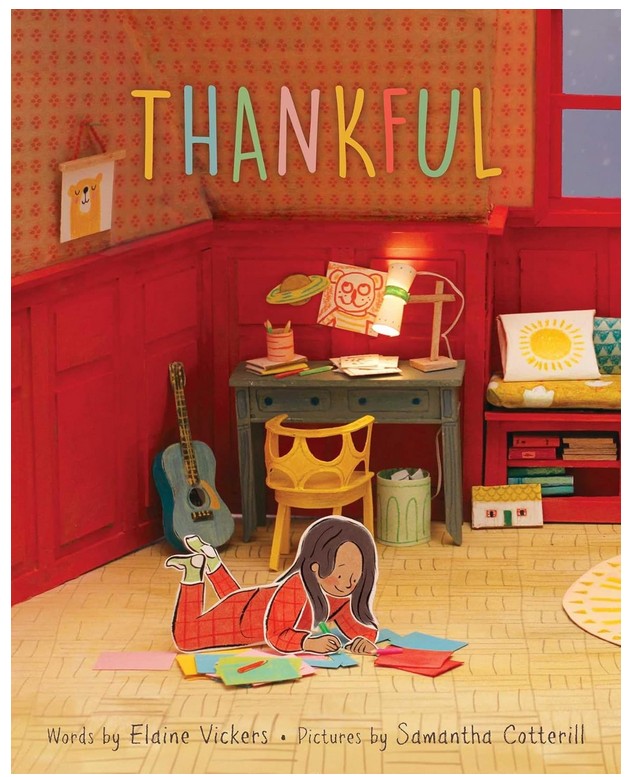
Thankful
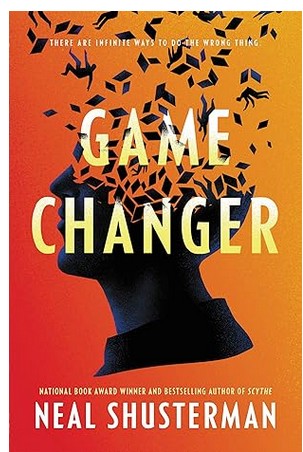
Game Changer

Swimming with Spies
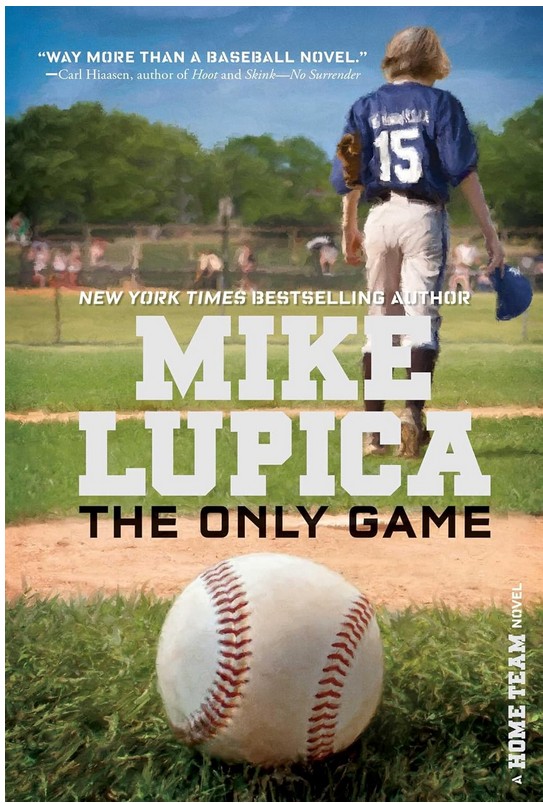
The Only Game
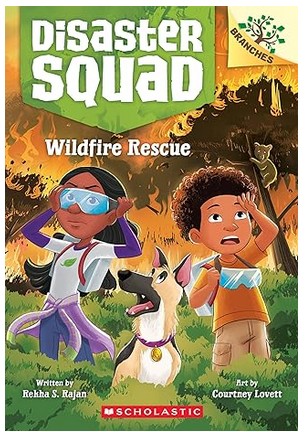
Wildfire Rescue
